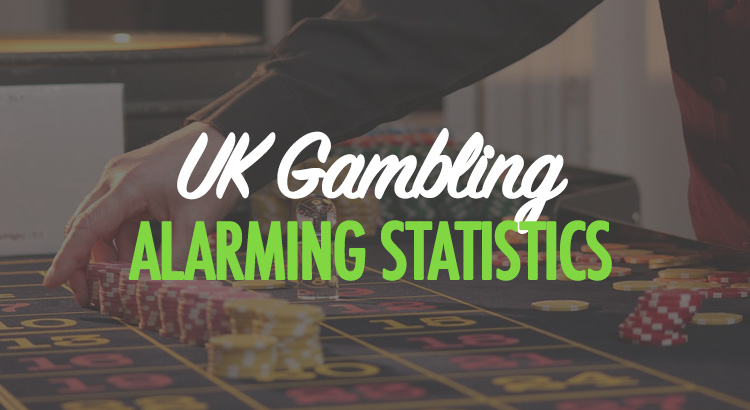I Think I Have A Gambling Problem Uk
Problem gambling statistics say that Italy had the most problem gamblers in 2018, though, with 2.4% of those who gamble being classified as such. The stats for problem gamblers in Great Britain are also significant, with 1% of 16 to 24-year olds who gambled being classified as such in 2018. If you feel that you have lost control of your gambling, there are some things you can do to help yourself. Admitting you have a problem is the first and most important step. Find someone you can trust to talk to about your problem. It could be a friend, a relative or a specialist advisor.
Gambling is often described as ‘the hidden addiction’. Unlike substance misuse or sex addiction, it can be much easier to hide the signs of problem gambling from other people. This is particularly true now online gambling is so widely accessible and popular.
But the effects of gambling addiction on a relationship can be devastating. It can destroy the sense of trust between partners often as a consequence of the secrecy or lies surrounding the addiction as much as the addiction itself. It can also ruin families financially.
It’s estimated there are around 450,000 problems gamblers in the UK. And anecdotal evidence suggests that every problem gambler impacts 5 to 12 other people.
What are the signs your partner is a gambler?
Many people whose partners have gambling addictions often report initially thinking their partner was having an affair as the signs are so similar. They include:
- Spending lots of time away. Do they often spend a lot of time away from the house and are vague about why? Some problem gamblers also get up very early in order to play before their partner or family are awake.
- Secretive around finances. Does your partner become cagey or defensive on the topic of money? Have they taken steps to conceal bank statements?
- Money going out of account without explanation. Obviously, it’s not always possible to hide it if you are spending large amounts of cash. Have you noticed unexplained deductions from your accounts?
- Secretive around internet use. Most gambling addictions are carried out online. Does your partner habitually delete their internet history or are they vague and evasive if questioned on their use of the internet?
- Emotional highs and lows. Do they seem extremely excitable and positive some times but then very low, upset or even angry with others?
- A change in behavior over time. You may feel like your partner’s behavior has changed gradually — getting more and more difficult or secretive in increments. This is usually how addictions begin: with things starting off more subtly, before spinning further out of control.
How does gambling affect relationships?
On a number of levels:
I Think I Have A Gambling Problem Ukulele
- The emotional impact. Very often, the partner of someone with a gambling addiction will feel betrayed upon finding out. There can often be a sense of feeling like they ‘aren’t enough’ to keep their partner happy. They might feel ashamed or even just simply hurt.
- Trust. This is one of the biggest factors. Most addictions involve some form of lying or concealment at one point. Many partners struggle to understand how their partner could have kept this from them, especially if it’s been going on for a long time. Trust can take a long time to rebuild after the revelation of an addiction like this.
- Financial. On a practical level, gambling addiction can decimate joint or family finances. It’s not uncommon for a problem gambler to dive into savings or take out multiple credit cards. This can leave the family with no other money for their basic needs, including household bills or mortgage payments. It also often means that peripheral things, such as holidays or new clothes for children, become unaffordable.
- Time. Something often forgotten about addictions is just how much time they take up. Gambling addiction can mean a person is away from their partner or family for long stretches of it — weakening their connection and making it that much harder to recover from the damage done.
What can you do?
The first thing to do if you think your partner is a problem gambler is to seek help.
GamCare has a helpline (0808 8020 133) that’s open seven days a week. They can provide you with advice on what your next steps could be. They can also help you think about whether your partner has a problem — you don’t need to be certain to give them a call. Their trained advisors can give both information and in the moment emotional support to help you feel calmer.
They’ve also got an equivalent online service called Netline, which allows you to exchange instant messages with an advisor, and online forums, where people who’ve been affected by problem gambling talk and support each other.
How we can help
If your relationship has been affected by your partner’s gambling, then we’d strongly recommend coming in for face-to-face counselling.

There may be a fair amount to unpack following something like this. This is not only in terms of the damage it may have done to your relationship or family, but in understanding and coming to terms with the circumstances that lead to the addiction in the first place. Often it takes going back to before the addiction even started to begin to understand why it happened.
Many partners blame themselves for the addiction – believing that if they’d been a better husband or wife, this never would have happened but things are rarely as simple as that. Sometimes figuring things out and getting them in perspective can be much easier if you’ve got a little help.
We ask Rachel Connor from debt advice charity StepChange, as part of Talk Money Week, to answer the following question. Join in the conversation on Twitter and tell us what you would advise.
Question
I’m worried about my husband and I think he may be hiding something from me. He seems to be getting more and more scary looking letters through the door, and they disappear quickly so I can’t see what they are.
When I ask him about them, he gets defensive and says they’re just junk mail. He goes out every evening pretty much, and most of the weekends too and my friend said she keeps seeing him at the local bookies.
When he’s in, he locks himself away in the spare room. He’s always been a bit of a gambler, but it's never been a problem before.
We’ve never been short of money in the past, but things keep going missing. Cash has disappeared from my purse and now my gold bracelet which my mother gave to me has gone.
I’ve searched the house top to bottom for it. I just don’t think I could ask if he’s stealing from me. Has he got us into trouble with money? Will he be truthful?

I have no idea what to do.

Anon, UK
Answer
Dear Anon,
I’m really sorry to hear about the stressful situation you’ve been dealing with. From what you’ve described, there’s a chance your husband may be dealing with a gambling addiction.

This can not only be difficult for him, but also for you, his partner. You clearly want to help him, but may be unsure how to support him in his recovery.
I Think I Have A Gambling Problem Ukraine
Gambling is a powerful addiction, so it’s important that you understand what your partner’s dealing with, and actions you can take/
According to the relationship counselling charity Relate, there are several danger signs of a gambling problem to look out for. Some of them seem to match up with what you’ve been witnessing lately. They include:
- Spending a lot of time away from the house and being vague or secretive about it. Some gamblers get up early in the morning to gamble while their partner or family are asleep.
- Becoming defensive whenever money is discussed.
- Hiding bank statements.
- Unexplained payments coming out of your bank account(s).
- Emotional highs and lows.
Even though your partner is the one facing the problem, how you feel is important, too.
Talk to someone
You’ve already mentioned that a friend’s noticed your husband’s behaviour. Do you trust this friend? Can you talk to them in confidence about how you’re feeling, or do you have anyone else you can talk to?
Having someone to share your feelings with can really help your own mental wellbeing.

Your GP can refer you and your partner to local support groups that specialise in gambling recovery. You could also encourage your partner to talk in confidence with their HR department or trade union about what they’re going through.
Is there any way to help your partner avoid the temptation to gamble? According to the Gambling Commission, there are over 8,500 betting shops in the UK. As a result, your partner may have to fight an impulse to gamble every time they walk along the local high street.
Have a think about the different gambling ‘triggers’ that may arise for them. For example:
- Can they take an alternative route to the shops, or to work?
- Are they pressured into gambling by friends or colleagues (during lunch breaks, on nights out etc.)?
- Are there any apps on their phone that encourage gambling?
Get support
Finally, tell your partner to get support from a gambling awareness charity such as Gamcare. They also offer confidential support and advice for family and friends of those with gambling problems.
You can contact them online or by phone on 0808 8020 133 every day 8am to midnight.
Your partner can even talk in confidence at local meetings held by Gamblers Anonymous. Sharing their problem with others who are seeking help with gambling can make them feel less alone.
Recovering from a gambling addition could take its toll, mentally and emotionally. Seek support for your mental wellbeing from charities such as Mind and Time to Talk.
If you have a mental health assistance scheme through your employer, then please take advantage of it. By giving yourself the support you need, you’ll be in a much better position to help your partner through recovery.
If your partner’s in debt due to gambling, we recommend that they get expert gambling advice as well as free and confidential debt advice.
If they don’t seek help with their addiction, there’s a high chance they may fall back into gambling, which could make their debt problem worse.
Citizens Advice has recently joined forces with GambleAware to offer support to gamblers who are also dealing with a debt problem. At StepChange Debt Charity we also offer free and confidential debt advice over the telephone and online.
There isn’t a one-size-fits-all solution to gambling problems, and different approaches work for different people. However, help is available and neither of you have to face the problem alone.